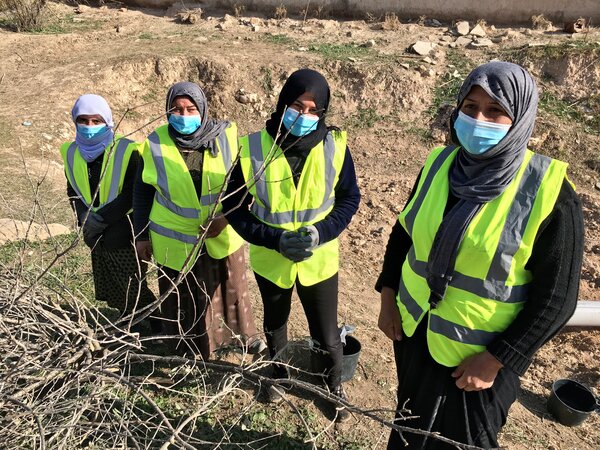Amid water shortages in Iraq, FAO, IFAD and WFP call for action on World Food Day to help communities confront climate change

Building on this year’s theme for World Food Day, “Our actions are our future- Better production, better nutrition, a better environment and a better life,”the UN partners and World Bank’s latest research highlights the impact of lower rainfall on people’s food security.
“The impact of water shortages in Iraq is becoming evident through the lower crop yields for 2021. Urgent action is required to confront climate change, working together to address the root causes,” said FAO Representative in Iraq Dr Salah El Hajj Hassan, WFP Iraq Representative Ally-Raza Qureshi, and IFAD Lead Economist Alessandra Garbero in a joint statement. “Reforming food systems will also help the most vulnerable communities in Iraq withstand future shocks. Resilient, modern food systems are important for long term food security and the sustainable economic growth of Iraq.”
Water shortages have resulted in below-normal development of vegetation, and are affecting crop yields. According to estimates from FAO, by the end of the season, wheat production will be 70% lower and barley production negligible. The lower levels of rainfall this season are having a knock-on effect on smallholder farmers who have already been dealing with challenges in accessing markets due to higher prices.
In Ninewa and Salah al-Din governorates, which are worst-affected by lack of rainfall, WFP’s analysis identifies that insufficient food consumption and use of negative coping strategies such as borrowing money or eating less food among households, are almost double the national average.
Vulnerable communities, a vast majority of whom rely on agriculture, fishing, and livestock, who contribute the least to the climate crisis bear the brunt of the impacts with limited means to cushion the blow. Urgent action is required to address the water shortages in Iraq and climate change, as focus shifts to the 26th Conference of the Parties (COP26).
Download copies of the latest report in Arabic and English at: https://bit.ly/2YKINTT
Topics
Iraq ClimateContact
Dr Salah ElHajjhassan,
FAO Iraq Representative,
salah.elhajjhassan@fao.org
Ally-Raza Qureshi,
WFP Iraq Representative,
ally-raza.qureshi@wfp.org
Alessandra Garbero, PhD, IFAD Lead Economist,
Near East, North Africa, and Europe Division,
a.garbero@ifad.org
